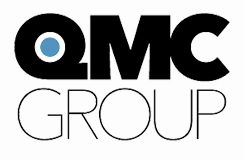Guess what? Storytelling isn’t just for movies, books, and TV shows. It’s a powerful tool in marketing, too. When buyers feel drawn to your story, they become more connected to your brand and are more likely to buy. Here are three ways you can incorporate storytelling into your printed pieces.
1. Tell a story with images.
A picture is worth a thousand words, and with the right image, you can tell a powerful story instantly. For example, ads for Heinz Hot Ketchup show a French fry with a burning tail. Whole Foods Market advertises a picture of a decadent English muffin with collard greens, roasted vegetables, egg, and bacon, with the tagline, “How does your breakfast stack up to this?” Images tell stories; it only takes one when it’s the right image.
2. Tap the power of print enhancements.
Print enhancement techniques like die-cuts, embossing, and soft-touch coating can tell stories, too. Tell the story of the softness of a baby’s cheek with a matte coating. If you sell custom windows, use die cuts in your brochures to show the home’s interior, featuring windows with beautiful mullions through which you can see a lovely backyard. When the brochure is opened, the reader sees that the mullions are die-cut into the page, allowing them to “see through” the windows as if they were there.
3. Fonts and color
In their essence, fonts are little pictures and can tell stories, too. For example, create a headline in the font “Knuckle Sandwich,” and you’ll instantly tell the story of a gritty, edgy brand. Use “Feminine Handwriting,” and the reader will hear “I feel pretty!” before they read a single word. The same goes for color. Incorporate yellow and mint green elements to create a positive, uplifting mood. Use splashes of vivid orange to say excitement! Color is powerful!
What story do you want to tell? Use these design elements to enhance your brand story or even tell it themselves.

